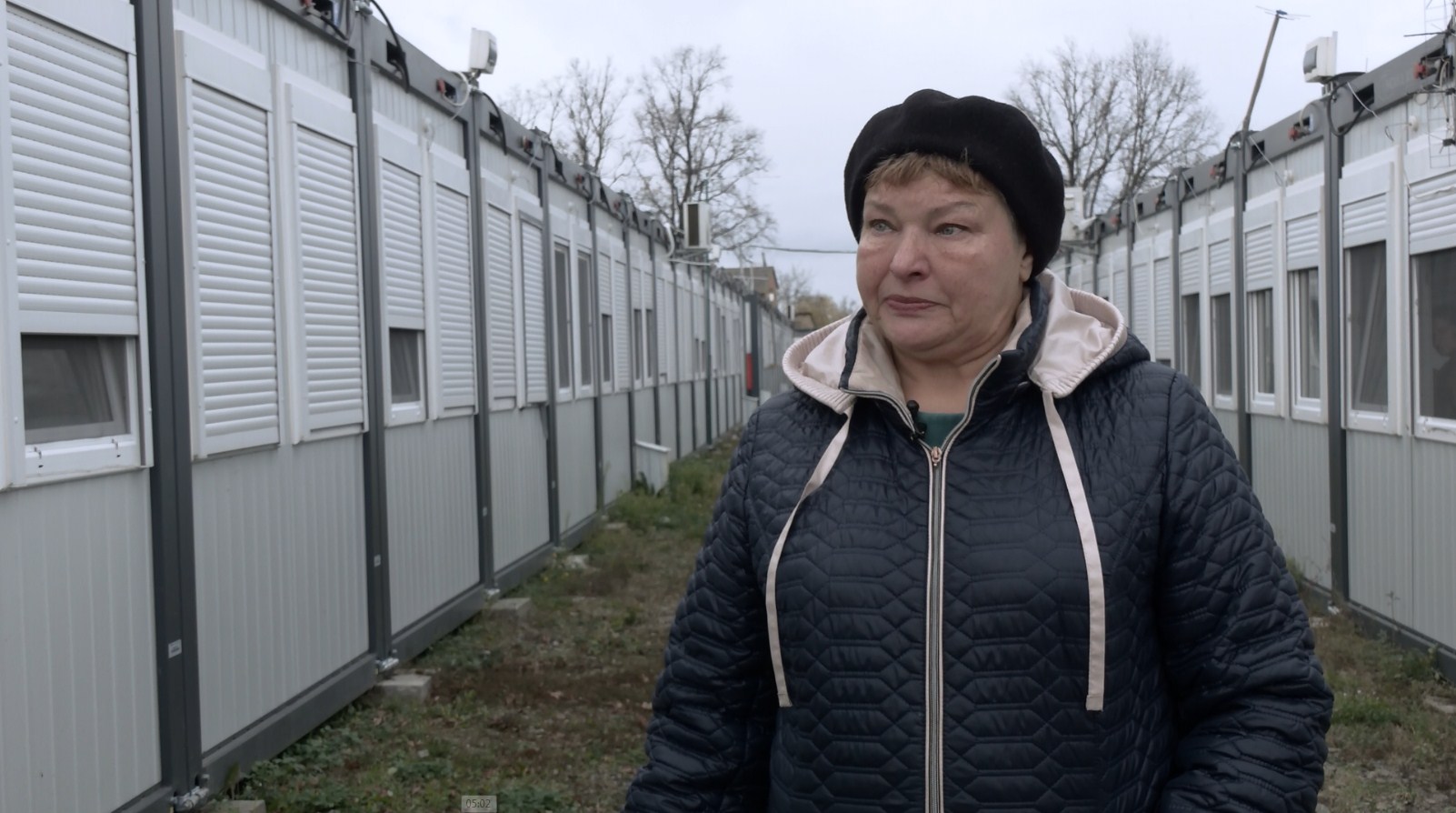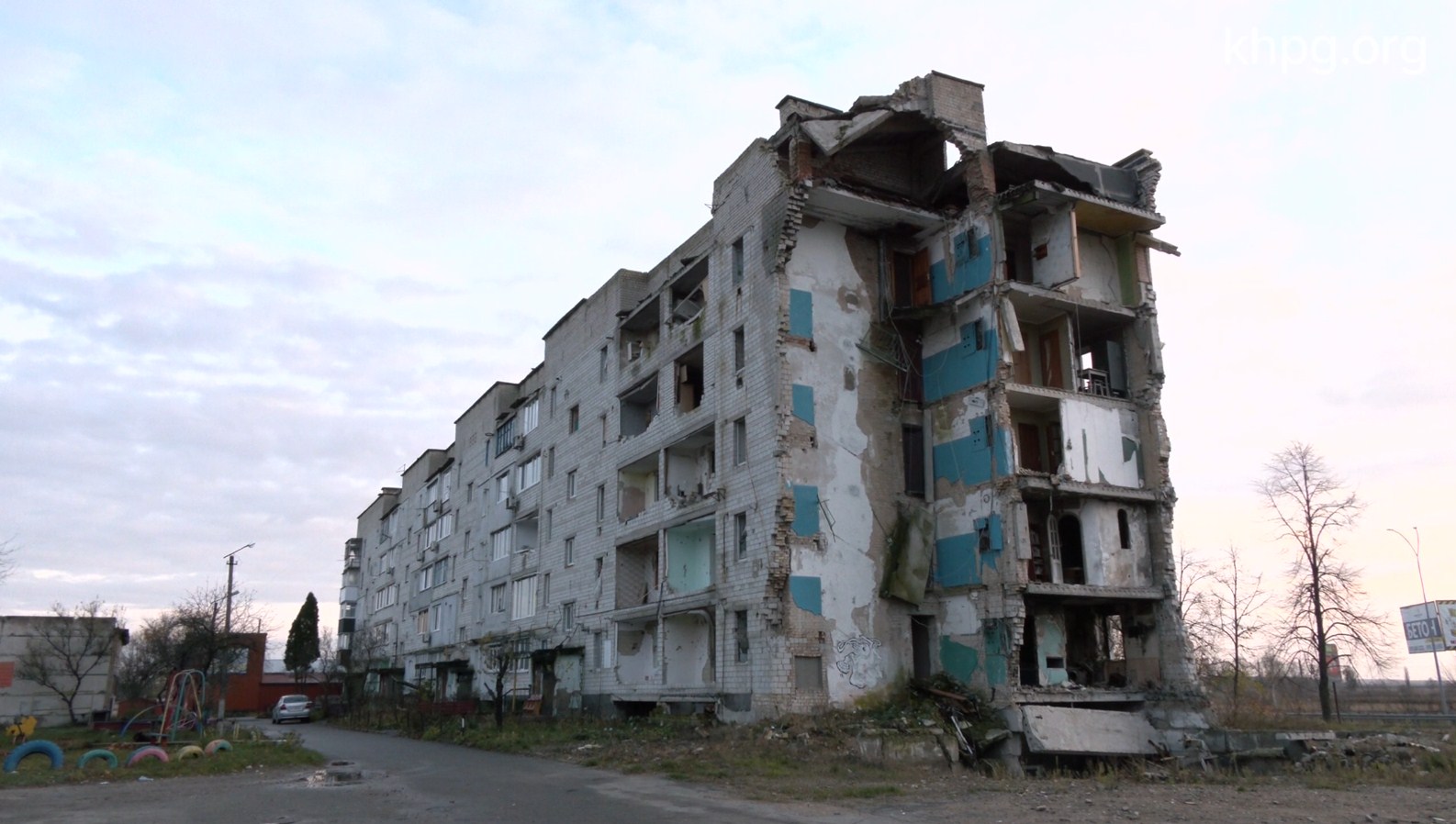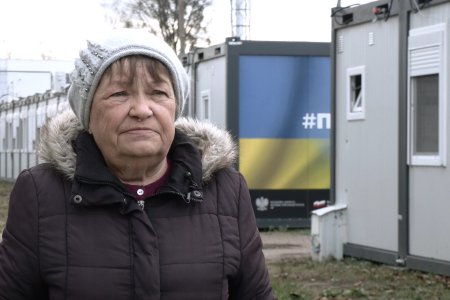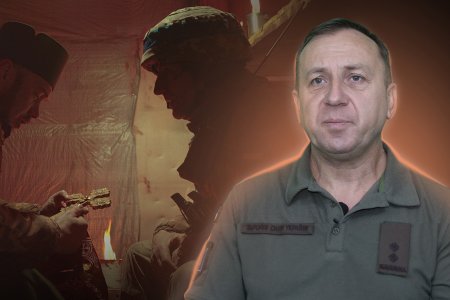On 24 February, we read on the Internet that tanks were coming towards us from Belarus. At first, we stayed home, although we had cars and could leave. Even before the 28th, I went to work selling the goods, but we spent the night in the basement, afraid to sleep in apartments. My daughter-in-law is a nurse who helped people: she gave out pills, baked bread, and distributed tea. We had a lot of elderly people and women with children.
On 28 February, Russian tanks entered Borodianka. Then our son, daughter-in-law Olena, Serhii, Vova, and their godfather Yuryk came to our basement. One day, we were drinking coffee in the basement, and I walked away to the other side, so to speak, into another room, and suddenly — that’s it, a white wall. We didn’t immediately understand what happened. It was an explosion.

People began to run away through the second exit. My grandson and I also ran. Everything was on fire, and the entire entrance was gone. This is how life “before” and “after” began. We were told to run to the basement of a neighboring house. We ran there and spent the night there. We asked people to look at our house and find out what was happening to our relatives, but everything was on fire.
Then they said it was an airstrike. Two or three bombs were dropped on our house. And then the tanks came, and they shot at the houses. I still ask myself: why didn’t we leave right away?! Moreover, we had cars. Well, no one thought this could happen.

And then, in groups of ten at night, they started taking us out of Borodianka. The children and I walked and didn’t take anything with us. We left with what we were in. Already in the neighboring village, they put me, the children, my friend, and my sister into a truck and took us to another town. Then we went to Rivne, and then to Poland.
When Borodianka was liberated, rescuers began to clear the rubble, lifted the slabs, and took out the bodies of our relatives — a whole family perished... My daughter-in-law, Olena Khukhro, my son, Serhii Khukhro, my niece’s son-in-law, Vova Pekar, and their godfather, Yura Kholiavko, died.
I still can’t go near the house. It hurts. I now live in a modular town with one of my sons and my granddaughter. I am a children’s guardian, and my granddaughter goes to the sixth grade. We hope that everything will be rebuilt and we will return because living here, morally, physically, and financially, is tough. We live this way because we have nowhere to go.



